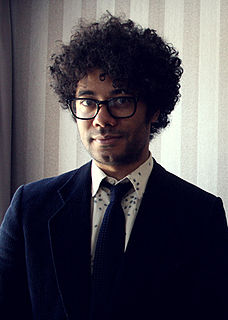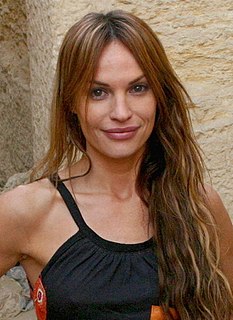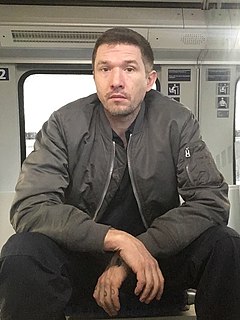A Quote by Margaret Wertheim
Nature doesn't feel compelled to stick to a mathematically precise algorithm; in fact, nature probably can't stick to an algorithm.
Related Quotes
Klout and various measurements of influence are fun. I love to see where I score on them, but there's a computer algorithm behind the calculation. If there's an algorithm, it can be gamed. Even if it's not gameable, you have to take a leap of faith that the number of followers, retweets, mentions, whatever really mean something.
But it seems to me equally obvious that the orderliness is not all-pervasive. There are streaks of order to be found among the chaos, and the nature of scientific method is to seek these out and to stick to them when found and to reject or neglect the chaos. It is obvious that we have succeeded in finding some order in nature, but this fact in itself does not prove anything farther.
Every computer divides itself into its hardware and its software, the machine host to its algorithm, the human being to his mind. It is hardly surprising that men and women have done what computers now do long before computers could do anything at all. The dissociation between mind and matter in men and machines is very striking; it suggests that almost any stable and reliable organization of material objects can execute an algorithm and so come to command some form of intelligence.
We live in a culture that's been hijacked by the management consultant ethos. We want everything boiled down to a Power Point slide. We want metrics and 'show me the numbers.' That runs counter to the immensely complex nature of so many social, economic and political problems. You cannot devise an algorithm to fix them.






































